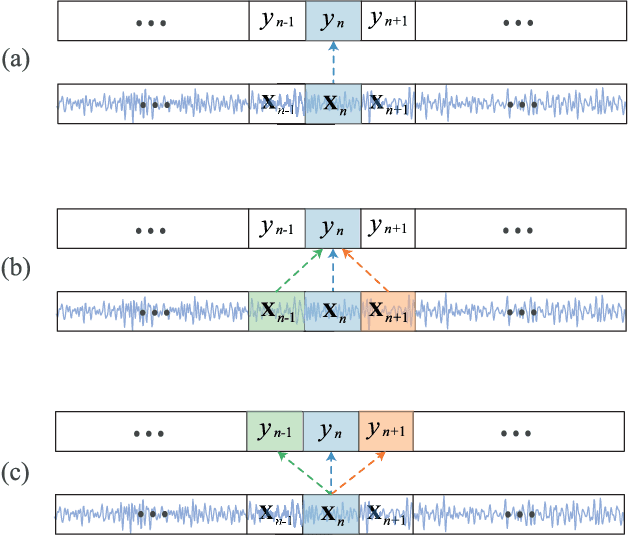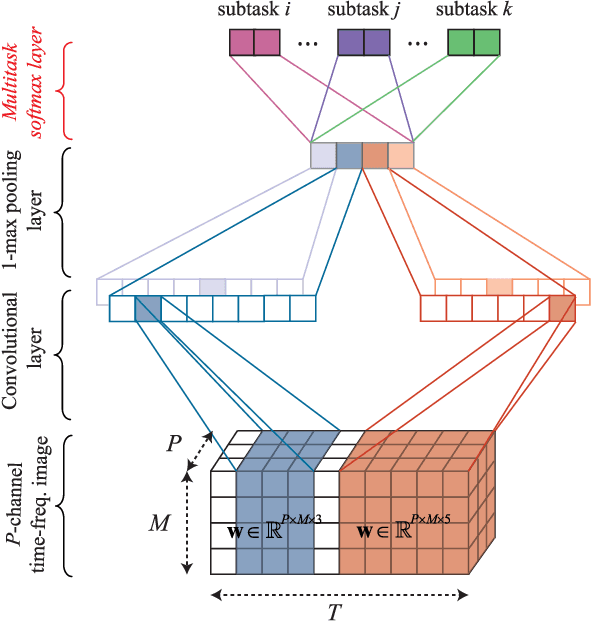Joint Classification and Prediction CNN Framework for Automatic Sleep Stage Classification
Paper and Code
Sep 04, 2018



Correctly identifying sleep stages is important in diagnosing and treating sleep disorders. This work proposes a joint classification-and-prediction framework based on CNNs for automatic sleep staging, and, subsequently, introduces a simple yet efficient CNN architecture to power the framework. Given a single input epoch, the novel framework jointly determines its label (classification) and its neighboring epochs' labels (prediction) in the contextual output. While the proposed framework is orthogonal to the widely adopted classification schemes, which take one or multiple epochs as contextual inputs and produce a single classification decision on the target epoch, we demonstrate its advantages in several ways. First, it leverages the dependency among consecutive sleep epochs while surpassing the problems experienced with the common classification schemes. Second, even with a single model, the framework has the capacity to produce multiple decisions, which are essential in obtaining a good performance as in ensemble-of-models methods, with very little induced computational overhead. Probabilistic aggregation techniques are then proposed to leverage the availability of multiple decisions. We conducted experiments on two public datasets: Sleep-EDF Expanded with 20 subjects, and Montreal Archive of Sleep Studies dataset with 200 subjects. The proposed framework yields an overall classification accuracy of 82.3% and 83.6%, respectively. We also show that the proposed framework not only is superior to the baselines based on the common classification schemes but also outperforms existing deep-learning approaches. To our knowledge, this is the first work going beyond the standard single-output classification to consider multitask neural networks for automatic sleep staging. This framework provides avenues for further studies of different neural-network architectures for automatic sleep staging.
 Add to Chrome
Add to Chrome Add to Firefox
Add to Firefox Add to Edge
Add to Edge